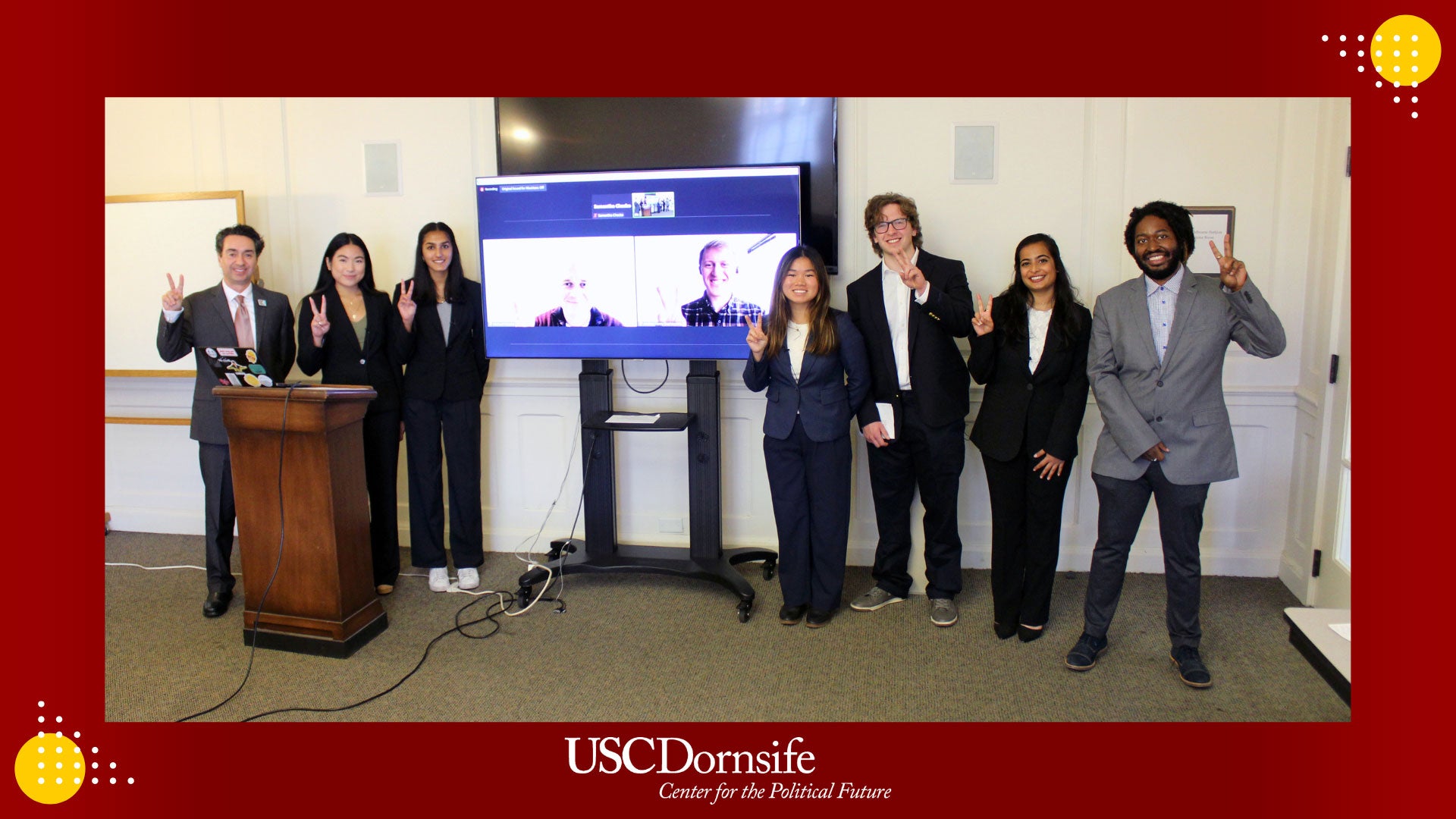
Fall 2023: “Political Reforms: Ranked Choice, Nonpartisan Redistricting, and Open Primaries” with FixUS
For the Fall 2023 semester, CPF POSC 395 Policy Research Internship students examined political reforms that have the greatest chance of passage and reducing political polarization in the United States. They explored nonpartisan redistricting, partisan primaries, ranked-choice voting, and other lesser-known measures such as “sore loser laws,” aligning state and local election dates to federal election dates, and implementing recommendations from the US House Select Committee on the Modernization of Congress.
Students examined which states passed which reforms and whether they successfully reduced political polarization and increased civic engagement. They also explored failed reform efforts to understand whether reforms failed on merit or because of poor execution or overwhelming minority opposition. They presented their extensive research to our partner, FixUS, an initiative of the national Committee for a Responsible Federal Budget.
Project: Political Reforms: Ranked Choice, Nonpartisan Redistricting, and Open Primaries
USC Students: Ysabelle Buenavista, Samantha Chacko, Eleanor Love, Andrew Lutz, and Shwetha Rajmohan
Research Question: Which political reforms have the greatest chance of passage and reducing political polarization in the United States?
Policy Takeaways:
The below political reforms are decreasing polarization.
Open Primaries
- Open primaries decrease polarization
- Referendums and past open primaries help implementation
- Money and messaging are possible roadblocks
Ranked Choice Voting (RCV)
- RCV generally supported
- Needs more research, but shown to be promising
- Municipal elections are low hanging fruit
Voter Suppression
- More accessible voting amplifies diverse voices
- Diverse voices increase depolarization
- Policies like using layman’s terms and Automatic Voter Registration (AVR) are low hanging fruit
Voter Pre-Registration
- Pre-registration increases youth turnout
- Youth identify as overwhelmingly independent
- Pre-registration is a realistic policy
- More research is needed
Non-Partisan Redistricting
- Best established via proposition
- Independent Redistricting Commissions (IRC) should consider public input
- IRCs increase competitiveness
- IRCs improve public faith in redistricting
- Experts and research agree IRCs are best
Money in Politics
- Evidence of efficacy is mixed
- A prudent, narrow approach is best; low hanging fruit
- Dark money reforms by themselves are not the sole solution
- Push for smart, clean election reform like in AZ, CT, ME
- Use matching and Voucher programs to mobilize average voters
- Utilize nonintrusive disclosure laws
Bridging the Aisle
- Design-based regulations for social media
- Assigning liability, age restrictions, and transparency
- Facilitate relationship-building through scheduled events, seating charts, and calendar changes
Read the group’s full research presentation.
Watch the video presentation on “Political Reforms: Ranked Choice, Nonpartisan Redistricting, and Open Primaries.”